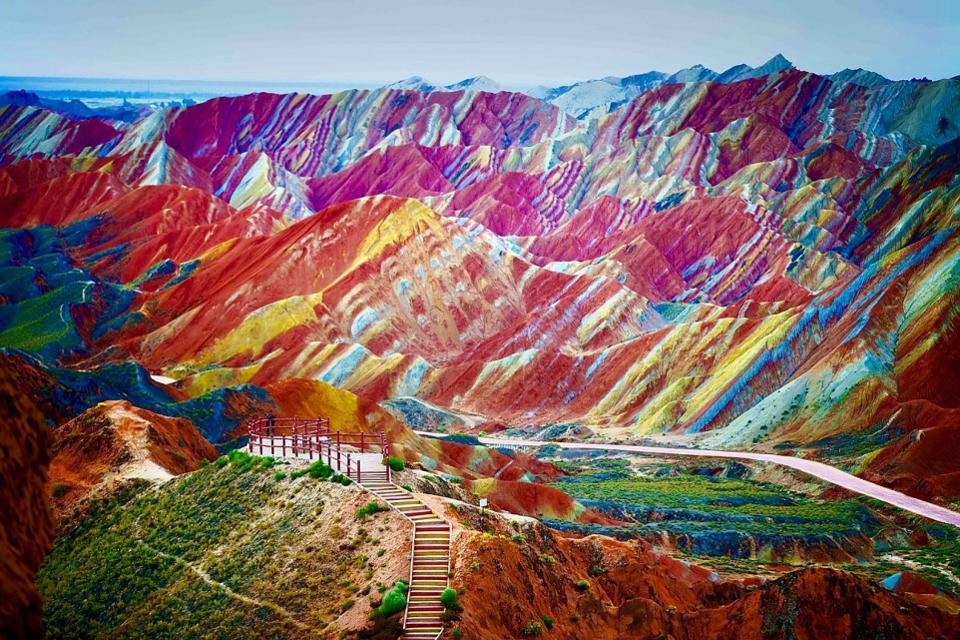
Geological miracles of the geographical world of China's Rainbow Mountain within Zhangye Danxia Landform. These famous Chinese mountains are known for their second large colors, which imitate the rainbow painted on the top of the rolling hills.
Geological miracles of the geographical world of China's Rainbow Mountain within Zhangye Danxia Landform. These famous Chinese mountains are known for their second large colors, which imitate the rainbow painted on the top of the rolling hills.
This is just an example where geology catches our attention and asks the question: What is the reason that the rainbow mountains are dyed in the way they are? Here I will discuss diagnostic and mineral processes that make red, green, yellow, and blues.
Zhangye Danxia National Park is located in the northwestern part of China, in the Gansu province, 200 square miles, the site was named UNESCO World Heritage Site in 2009 and it is a destination for many Chinese and international tourists.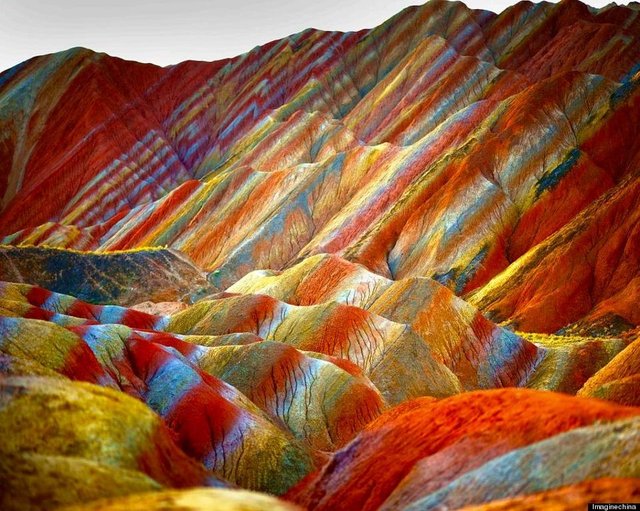
Once the layered horizontal and flat-stratigraphy was interrupted by the collision of the Indian Plate in Eurasian Plate about 55 million years ago. When two cars meet in a debris and fold and break the bunkers, then similar process was added, which we see today that Sandhunosh Mountains were once sandstone. This process raised the mountains and exposed sedimentary rocks which were otherwise well hidden from the earth's surface. Weather and erosion removed the overlying layers of continental siliconic rocks and exposed the underlying structures with various mineralogy and chemistry. Due to this there is a surprising difference in the colors that look across the rainbow mountains.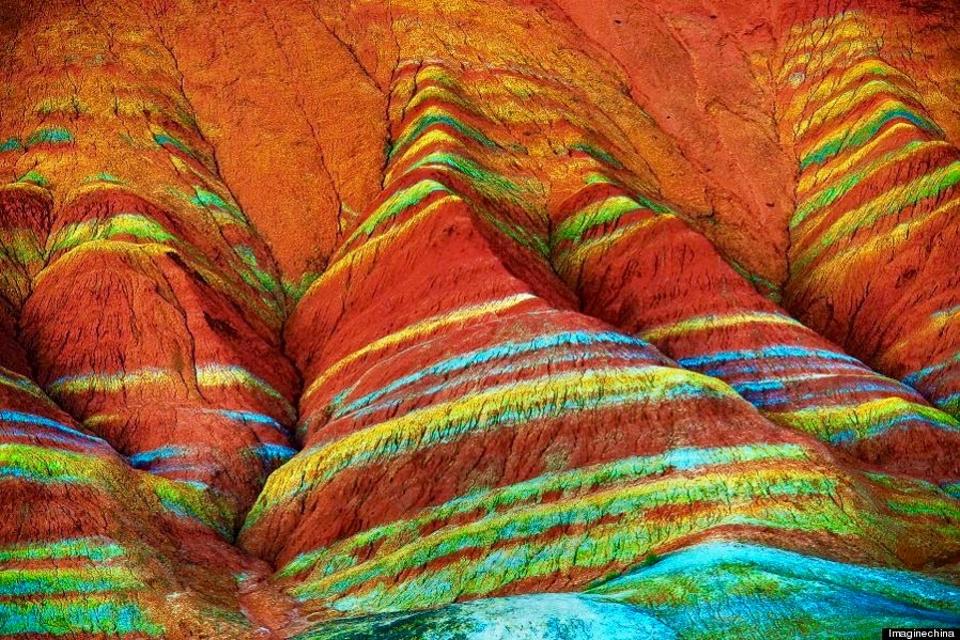
So now that you have come to know how the rainbow mountain has been formed, then we will discuss a bit about how the color that we see today is how it got it. Studded groundwater walks through sandstone grains and detects minerals between deposited grains. This precipitate can be made up to a point where there is no power space between different grains, adding them to the place, this process provides the mineral minerals mentioned below and the colors of the second color of the leaves of the world Allows for.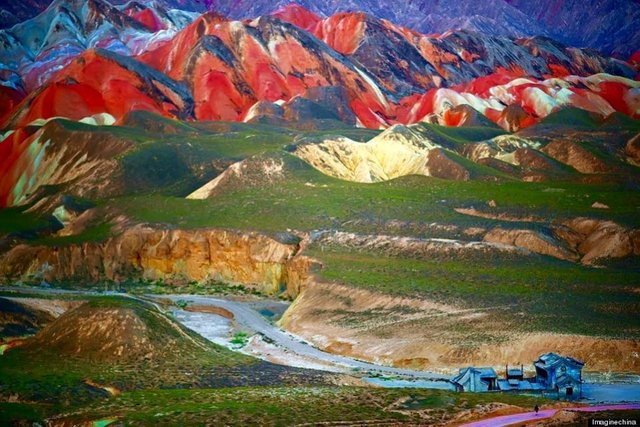
Most of the time iron oxides are given a dark red color, however, there are instances where oxides create different colors. For example, oxidized limonite or guavaite will produce brown or yellowish staining of sandstone, black staining of magnetite sand leaves may occur. If iron sulphide is present, you will get a metallic yellow color provided by sulfur. In the meantime, green color is often caused by chlorite or iron silicate soil. These are just a few examples of how sandstone can be changed in colors during digestiones.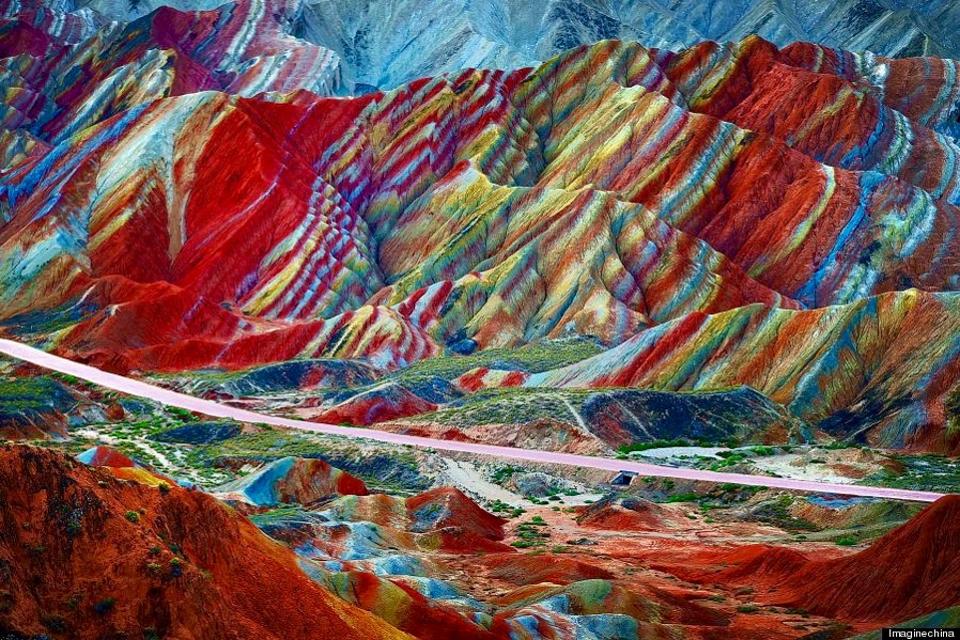
Fortunately for you, you do not have to travel north-west China to see this exact process. Go out and roam around, looking down and down on the landscape. Try to identify a rock with a red everything and a good chance that you have identified an iron oxide stain sandstone.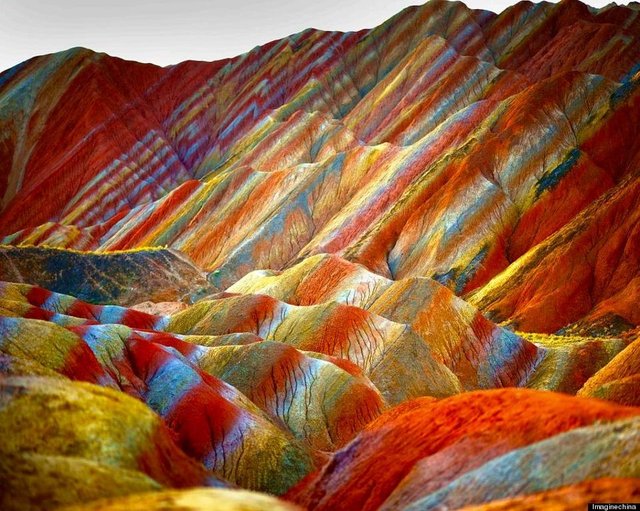
@originalworks
Downvoting a post can decrease pending rewards and make it less visible. Common reasons:
Submit
The @OriginalWorks bot has upvoted and checked this post!
Some similarity seems to be present here:
https://www.forbes.com/sites/trevornace/2016/03/02/rainbow-mountains-china-earths-paint-palette/
This is an early BETA version. If you cited this source, then ignore this message! Reply if you feel this is an error.
Downvoting a post can decrease pending rewards and make it less visible. Common reasons:
Submit
arjeshv!! Thank you, your Post. i upvoted.^^
Downvoting a post can decrease pending rewards and make it less visible. Common reasons:
Submit
@arjeshv my hope, some day i Will be there.
Downvoting a post can decrease pending rewards and make it less visible. Common reasons:
Submit
Nice
Downvoting a post can decrease pending rewards and make it less visible. Common reasons:
Submit